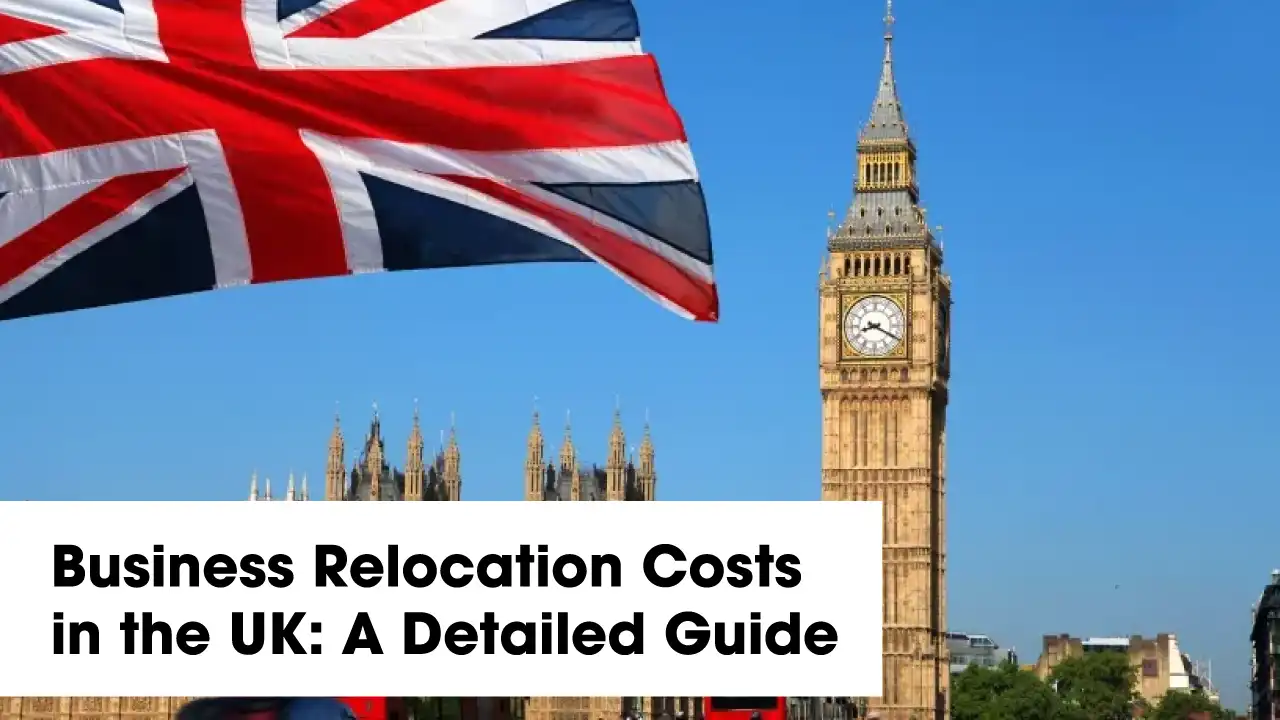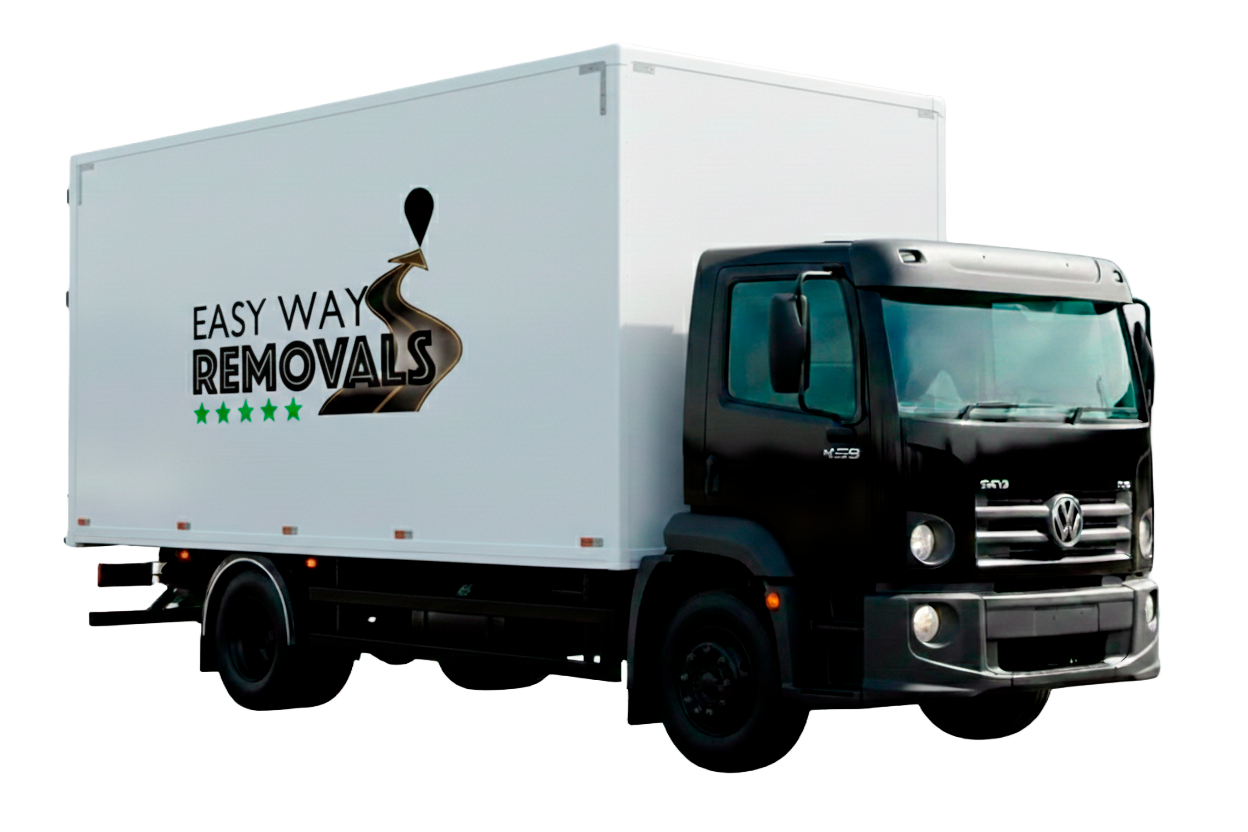
Moving your business to the UK is a big deal, and there’s a lot to think about. Understanding the details of “Business Relocation Costs in the UK” is crucial for making smart choices.
Here’s a quick overview: these costs include things like buying new space, moving stuff, updating technology, legal fees, and other indirect expenses like moving employees and dealing with disruptions. To make it all work smoothly and save money, you need careful planning and smart decision-making.
This guide is here to help businesses navigate the money side of moving offices, giving practical tips for a smooth and budget-friendly transition.

Business relocation means moving your office or workplace to a new place. People do this for smart reasons like —
Doing the move right can make the business work better, make the workspace better, and help the business succeed overall.
Understanding the costs associated with business relocation is crucial for making informed decisions and avoiding unexpected financial challenges.
A comprehensive assessment of expenses, both direct and indirect, allows businesses to plan and budget effectively, which ultimately ensures a smooth transition without compromising financial stability.
So, what is covered in relocation costs? Let’s explore the various expenses involved in business relocation, breaking down the costs into direct and indirect categories to understand the financial aspects of moving an office.

Direct costs in business relocation refer to the specific expenses directly associated with moving, such as securing a new office space, hiring a removal company, and handling logistics like refurbishment and technology relocation.
Let’s explore the following:
Getting a new office space comes with costs like fixing things (dilapidation), paying the office removal company, making the place look good (refurbishment), setting up the inside (fit-out), and hiring a lawyer. All these things add up, and the price depends on how big and nice the new place is.
As per dilapidation cost, it can be anywhere from £5 to £20 for each square foot, and how much you pay depends on how much damage there is to the property.
Moving your stuff costs money, and it depends on things like how far you’re going, how quickly you need to move, and how much stuff you have. It’s important to hire a good office removal company to make sure everything goes smoothly. The cost can be anywhere from £3,000 to £10,000.
Changing and fixing up your new office, also known as refurbishment, can have varying costs. It depends on how your new office looks and if it matches what you want. It’s smart to think about this when you’re planning to move and get estimates for any fixing needed.
It might just be a simple thing like a new paint job, which won’t be too expensive. But if you want big changes to fit your business, it could cost more, around £15 to £65 for each square foot on average. So, it’s important to figure out what needs fixing early in the moving process.
These costs are kind of like the refurbishment expenses. Setting up your office, known as office fit-out, can cost between £15 and £65 for each square foot. It’s crucial to pick the right layout for your office space to use it well.
It’s a good idea to ask a qualified expert for advice on how to arrange your office effectively, as they might have valuable tips to get the most out of your staff.
It’s a good idea to have a survey done on the place you want to move into, and the cost depends on how big the office is and how detailed you want the survey to be. The more detailed the survey, the more it will cost.
A chartered engineer does the survey, and it helps find any problems that might happen later on. We suggest doing this to avoid any surprises in the future. The cost of the survey can be anywhere from £750 to £5000.
When you move, you need to take your technology stuff with you. This costs money because you have to take things apart, move them, and then set them up again. Understanding these costs is important to make sure your business keeps running well, and there are no problems.
To make sure everything goes right when you move, you need lawyers and people to check things out (property survey). They make sure the lease (rental agreement) is good, everything is legal, and the new place is in good shape. This helps protect your business during the time you’re renting the new place.
Talking about the costs for solicitors, how long your lease is, and how big your office is can affect how much you pay. The fees for solicitors can be between £2000 and £8000, depending on which business relocation services you choose.
The cost of the Schedule of Conditions is usually between £1000 and £2000. But, not having it can lead to much higher expenses later, especially with repair costs.
This schedule describes the state of your new office at a specific time and is kept for future reference when you need to know how things were before. If everything is okay, you and your landlord will agree on the conditions.
Now, regarding storage, it’s another cost to think about during the move. To save money, you might consider using business storage solutions like small units or bigger containers. The cost depends on how much stuff you have, ranging from £22 to £88 per week, according to Checkatrade.
Indirect costs in business relocation are additional expenses not directly tied to physical moving but encompass considerations like employee relocation, operational disruptions, and training to ensure a smooth transition.
Let’s explore the following:
Indirect costs in business relocation include things like moving employees, giving them training, and helping them settle into their new roles. Making sure your staff feels comfortable in the new place is important for keeping them happy and working well.
Another indirect cost is when things unexpectedly slow down or stop in your daily work. This can affect how much work gets done and, in turn, how much money the business makes. Planning for these slowdowns and finding ways to keep things going is really important.
Indirect costs also involve spending money on training and helping employees get used to their new jobs in the new office. This helps them work better and makes the move successful.

The cost of packing and moving depends on various things. Let’s give you a rough estimate to see if the price your moving company gave is fair.
Firstly, make sure you plan well ahead. If you don’t plan properly, you might face issues later that add to your moving costs. Also, check that the people moving your stuff are legit – a good way to do this is to see if they’re recognised by a trustworthy association.
For local business moving costs, be ready to spend between £3000 and £10,000. It’s a good idea to check with different movers to get quotes and understand what you might have to pay before making any decisions.
Let’s explore the underlying factors that affect the cost variations.
The size and what kind of business you have really matter when you’re moving. If your business is big and has a lot of complicated things, moving can cost more compared to smaller businesses.
How far you’re moving, how quickly you need to move, and what time of year it is can affect how much moving will cost. If it’s an urgent move or during a busy time, it might be more expensive.
If your business has a lot of complicated technology or special setups, moving can be harder and cost more. This is something to think about when planning for the move.
Are you wondering, “how to organise an office move?” Visit our insightful blog to learn all about the ways.
Follow the strategies below that can help you effectively optimise your costs.

Planning well and making a clear budget is super important for managing costs when moving. Thinking about all the possible expenses helps businesses get ready for the money they need to spend.
Talking with the people providing services, like the company moving your office or contractors, can help save money. Checking different prices and asking for discounts can make the overall budget better.
Getting your employees involved in the planning is a good idea. It helps everyone work together, and they might have good money-saving ideas. Having everyone on board makes the move smoother.
Businesses should look into possible tax benefits connected to moving expenses. Sometimes, governments give tax breaks to companies making smart moves that help the local area.
Using technology tools for managing projects, talking, and working together can save time and money. Digital solutions make things easier and more efficient, cutting down on manual work.
Visit our insightful blog to learn about common challenges in office relocation and how to tackle them in London.
If you’re stressing out about your business relocation in London, choose our Commercial Removals Service at Easy Way Removals. Our skilled team makes sure moving your business is easy. We provide complete services for different places like offices, hotels, libraries, and medical clinics.
Get advantages from our reasonable prices for Commercial Movers in London, starting from £30 per hour for self-loading to £80 per hour for a driver with three helpers. We focus on safe moves, using modern tools for a smooth transition. Our full solution includes overnight moves, packing, business storage, and more, personalised for your special needs.
Trust Easy Way Removals for a stress-free and reliable commercial relocation experience in London. Book now to make your move a success!
To sum up, dealing with the details of Business Relocation Costs in the UK requires careful thinking and planning. It’s essential to understand the various expenses involved, from the cost of the new space and moving arrangements to legal fees and other indirect costs. This comprehensive understanding is crucial for a successful relocation.
Relocation costs refer to the expenses associated with moving from one location to another, including moving logistics, legal fees, and related expenditures. These costs vary based on distance, size, and complexity of the move.
A typical relocation package in the UK may include services like packing, moving, temporary housing, and support with selling homes and travel arrangements.
Yes, in the UK, if a mobility clause is included in your employment contract, your employer can generally require you to work at a different location within the specified limits. However, it should be reasonable and not unreasonably burdensome, such as relocating to another country with minimal notice.




